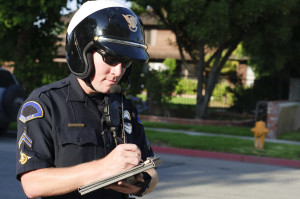The New Jersey Council on Local Mandates has put the state’s police camera law on hold, at least temporarily. The statute requires that every new or used municipal police vehicle purchased, leased, or otherwise acquired on or after the bill’s effective date that is primarily used for traffic stops must be equipped with a mobile video recording system. The measure defines a “mobile video recording system” as a device or system installed or used in a police vehicle or worn, or otherwise used by an officer that electronically records visual images depicting activities that take place during a motor vehicle stop or other law enforcement action.
To fund the municipal cost of equipping police vehicles with video recording systems, the legislation raises by $25 the surcharge imposed on individuals convicted of driving while intoxicated. The additional $25 surcharge will be payable to the State, county, or municipal entity that issued the summons. The law further stipulates that the increased amounts payable to municipalities from the surcharge must be used for the cost of equipping police vehicles with mobile video recording systems.
Prior to the enactment of the police camera mandate, the Office of Legislative Services (OLS) concluded that the new revenues were unlikely to cover the full costs of purchasing, maintaining, and repairing the mobile video recorders. After Gov. Chris Christie signed the bill into law, the Deptford Township filed a complaint before the Council on Local Mandates, which has the exclusive constitutional authority to rule that a State law, rule, or regulation imposes an unconstitutional “unfunded mandate” on municipalities. Under the Constitution, if the Council so rules, the “unfunded mandate” in the law, rule or regulation ceases to be mandatory in effect and “expires.”
Deptford Township’s complaint argued that the police vehicle camera requirement was an unfunded mandate in violation of the New Jersey Constitution and the Local Mandates Act. According to the municipality, its detailed cost analysis revealed that the direct expenditures associated with implementing the police camera mandates would far surpass any additional revenue generated. As set forth in Deptford Township’s complaint:
If the Township were to rely solely upon the $25.00 increase to the surcharge, it would take approximately 7.58 years to recuperate the first year’s cost of implementing a vehicle mounted camera system. Relying solely on the increased surcharge in order to purchase cameras worn individually by each officer, it would take approximately 28.21 years to recuperate the first year’s cost of implementing a body worn camera system.
Earlier this month, the Council enjoined the application of the statute. In this regard, Council Chairman John Sweeney AJSC (Ret.) stated that “the Council is unanimously satisfied that the mandate… will lead to irreparable harm not just to [Deptford] but to all municipalities in similar circumstances.”
The statute will not be officially enjoined until the Council issues a formal order in the coming weeks. Thereafter, the Council must still make a final determination as to the constitutionality of the police camera mandate. We encourage our readers to check back for updates.
For more information about the Council on Local Mandate’s decision or the legal issues involved, we encourage you to contact a member of Scarinci Hollenbeck’s Government Law Group.

